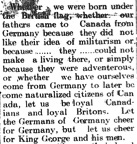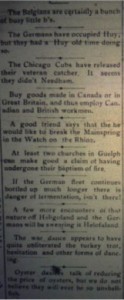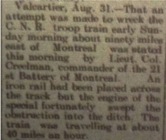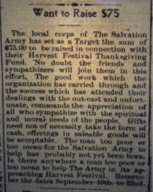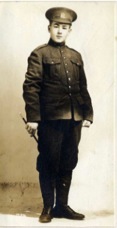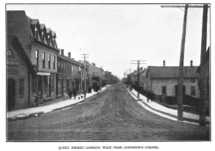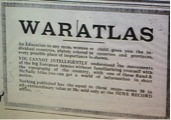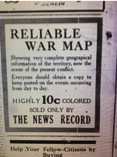Several Waterloo Region newspapers raised questions regarding the region’s German heritage and the implications that heritage would have on the war effort. As the war proceeded, local newspapers addressed the loyalty questions that surrounded German-Canadians which suggests that this was a genuine attempt to recognize these individuals as citizens and not a form of propaganda. This article outlines the magnificence of modern Germany and the rich heritage German-Canadians had. It returns to the issue of loyalty by stating that British democracy and Canadian values have made a more wholesome society than Germany, stating, “is there a freer country under the sun than Canada?” This article concludes by urging those of German background to become immersed in Canadian society and support the cause of the allied nations, as they should as Canadian citizens.
(“German-Canadians“ Elmira Signet, 3 September 1914)
